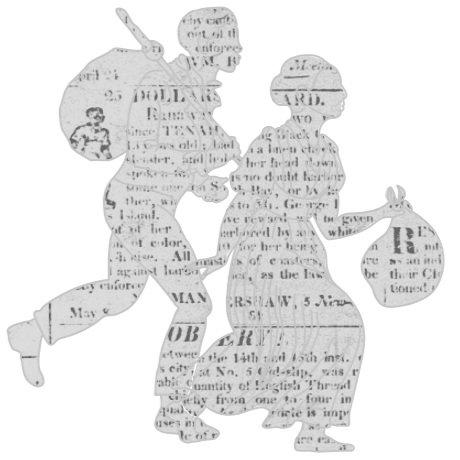KINSEEKERS
RESOURCES FOR
Oceans of Kinfolk is a database built by Jennie K. Williams of the antebellum coastwise traffic of enslaved persons. It includes the names of more than 63,000 enslaved men, women and children trafficked to New Orleans, the nation’s largest market for buying and selling enslaved human beings, from domestic ports—mostly in Virginia or Maryland—between 1818 and 1860. It is based on information drawn from thousands of ship manifests.
Based on information gathered from notarial records from Orleans Parish, Louisiana Kindred is a growing database of enslaved individuals who were sold in antebellum New Orleans, the nation’s largest market for buying and selling enslaved human beings.
Between the arrival of Charles Carroll I in Maryland in 1689 and the Civil War, the Carroll family enslaved approximately a thousand African and African American people. Named in Affectionate Terms is a resource, built by Jennie K. Williams, for anyone seeking to learn about and remember those individuals
The Maryland Stare Archives’s The Beneath the Underground database “features entries of over 400,000 individuals including, white and black, slave owners, enslaved and free individuals from primarily the years of 1830 through 1880.”
Last Seen is a database of advertisements placed by African Americans, many of whom were formerly enslaved, seeking to reconnect with family and loved ones in the decades following emancipation.
Enslavers often posted “runaway ads” in newspapers to try to locate fugitives from slavery by offering rewards for their capture. Additionally, jailers posted ads describing people they had captured in search of the enslavers who claimed the fugitives as property. Freedom on the Move is a database of these advertisements.
This is a database built by the late Dr. Gwendolyn Midlo Hall based on her research on approximately 100,000 enslaved persons who were brought to Louisiana in the eighteenth and early nineteenth centuries by enslavers.
The United States Bureau of Refugees, Freedmen, and Abandoned Lands, commonly known as the Freedmen's Bureau, was created by Congress in 1865 to assist in the political and social reconstruction of post-war Southern states and to help formerly enslaved people make the transition from slavery to freedom and citizenship. In the process, the Bureau created millions of records that contain the names of hundreds of thousands of formerly enslaved individuals and Southern white refugees.
Virginia Untold provides digital access to records at the Library of Virginia that document the lived experiences of enslaved and free Black and multiracial people. Sources such as local court records and state records contain the names of millions of enslaved and free Black men, women, and children. These records are access points to the individual experiences of Black Americans who lived in Virginia from the establishment of slavery in the 1600s until the late 1860s.
The Historical Archives of the Supreme Court of Louisiana contain many records of cases related to enslaved ancestors. These records used to be freely accessible online. This is no longer the case, as you can see if you click “The Historical Archives of the Supreme Court of Louisiana” on this page. Contact the University of New Orleans for more information.
Born in Slavery: Slave Narratives from the Federal Writers’ Project, 1936-1938 contains more than 2,300 first-person accounts of slavery and 500 black-and-white photographs of formerly enslaved people.
Have a suggestion we should add? Please let us know!












